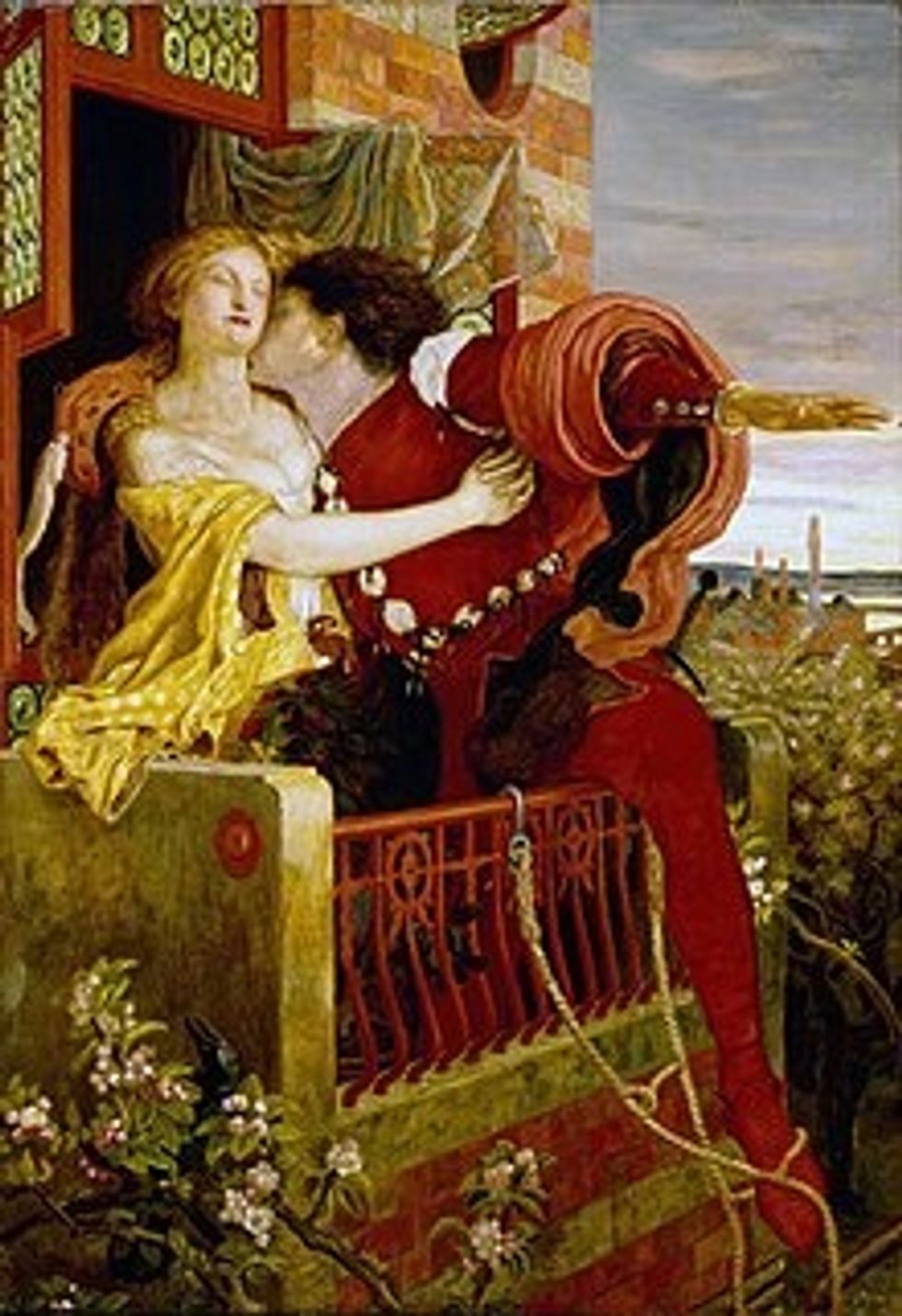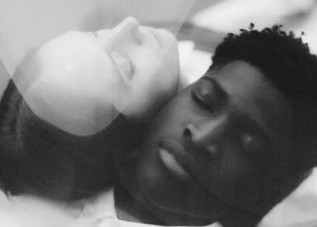
Romeo and Juliet is the ubiquitous love story…
Not the original, but certainly the most definitive. Saying either titular name immediately conjures up the familiar refrain of star-crossed lovers and families alike in dignity. It’s status is such that it has been subject to endless movie reinterpretation from Baz Luhrmann‘s glitzy take, to the parallels of Disney’s High School Musical. On the stage, there have been all-male, and all-female takes, as well as gender flipped, gender non-conforming, agender, pan gender, and trans castings. It is a text that has been done every which way. However, this year’s FringeNYC presents a version that, somehow, feels fresh. That play is Starcrossed.
In Starcrossed, Tybalt and Mercutio fill the roles of star-crossedlovers. In contrast to many other looks at the material, writer Rachel Garnet is not overly-reliant on the source text. She does draw heavily on thematic and linguistic aspects of the original, as is to be expected. However, the vast majority of the play is either newly minted dialogue or a deliberate reinvention of the old verbiage. Tybalt has a speech in which he quotes “A lion by any other name,” and Mercutio fights the herald of dawn in saying “It was the nightingale and not the lark,” but for the most part, the text is new, or is presented in such a way that it feels as if it must be.
Here we see these two enemies transition from antagonists to practitioners of co-somnia. Their struggle is presented both in parallel to that of side characters Romeo and Juliet and also as a superior, worthy cause to champion. In fact, the few times Romeo is seen on stage he is presented as a simpering fool. Tybalt and Mercutio, on the other hand, struggle with house allegiance, potential societal backlash, and conventional roles of masculinity in a religiously governed civilization. They are Rosencrantz and Guildenstern from Rosencrantz and Guildenstern Are Dead, but instead of existential dilemma, they channel the Geist of gay rights. It’s something of a genius conceit, and Garnet’s text presents a wonderfully metered love story along those lines that twinkles with amor and lust in each iamb.
Nowhere is that truer than in the work of Connor Delves as Mercutio. As mercurial as the name suggests, he seems to burn his way through every line of verse, delivering a character at a breakneck pace that seems to eat sleep, and breathe sex, and yet has subtle insecurities. Eric Bermudez as Tybalt is the antithesis of this, and as such makes an excellent sparring partner and romantic foil for Delves. He seems to be weighed down by self-expectation, and stiff to the point of paralysis with overdone masculine drive (if you’ll pardon the image). Watching him gradually break down his defenses and yield to the more conventionally queer-coded behavior of Mercutio is an excellent spectacle.
Byron Hagan plays literally every other character in the show. He is at once the simpering Romeo, the simpering Juliet, the traditional lords Capulet and Montague, as well as a host of other incidentals familiar to scholars of the play. He is gently versatile and does good work in his sprints from one characterization to another. All of this is married together by the director and design team. David Kahawaii IV presents theatre that feels very much in keeping with the Fringe spirit. Limited set in the form of three hollow Ottomans and sparse lighting focused on a plot of predominantly passionate purples, provide enough of a sense of space and emotion without overshadowing performances.

It felt like Kahawaii emphasized the importance of pace to the actors during the rehearsal process, which serves the piece well for the most part. It turns a figurative whirlwind romance into a literal one, with each scene coming quickly on the heels of the next. However, this is also the production’s only real major flaw. Whilst it does slow down momentarily for Tybalt to have a tender penultimate scene with Juliet, the climactic final battle between the two male lovers feels like it is brushed over too quickly. For all the exquisite buildup prior, the last scene of the play feels like it dispels its own well-earned tension with the pop of a balloon, rather than a shot heard around the world. Doubtlessly, it’s a problem remediable in the further development of the piece. Development that it very rightly deserves.
Rachel Garnet has done something here that few people have managed. Yes, the play is a re-imagining of a classic story, but so much of it is fresh and new, and so vitally alive, distinguishing it from the “new coat of paint” or “Shakespeare, but in space” productions that plague Western theatre. It feels timely and timeless, and the flaws it does have will fade like teenage acne as it forges onwards towards the theatrical main stage. Keep an eye out for this in future.
To find out more visit starcrossedtheplay.com
Thomas Burns Scully is a Popdust contributor, and also an award-winning actor, playwright, and musician. In his spare time he writes and designs escape rooms. You can follow him on Facebook, Twitter, and Instagram.
POP⚡DUST | Read More…
F*** Yeah It’s Summer. The NSFW Anthem You Didn’t Know You Needed
Eddie Izzard: transgender, hilarious, and heartbreaking
‘Pop Punk High’, a pop punk musical comedy? Um… yes please!













